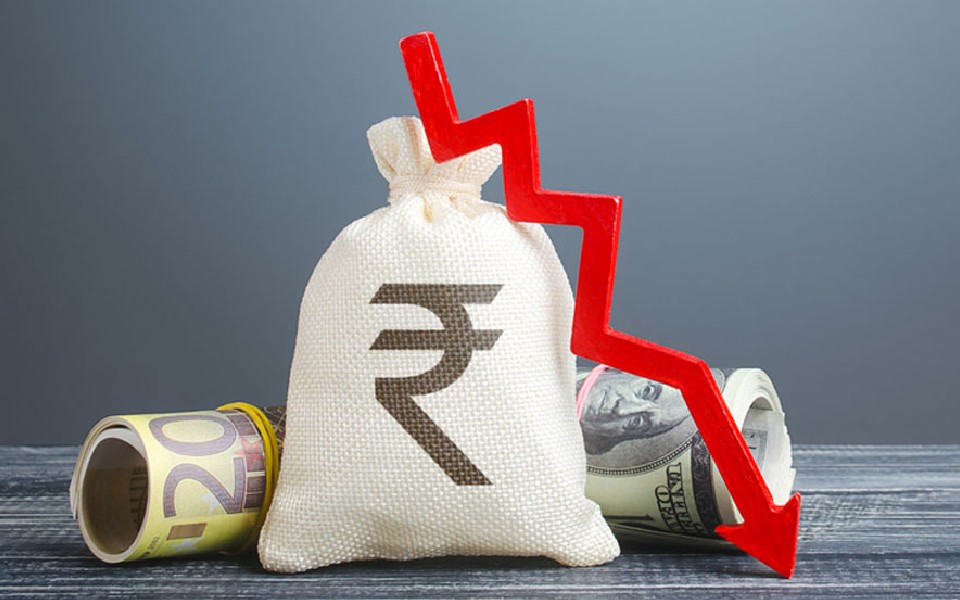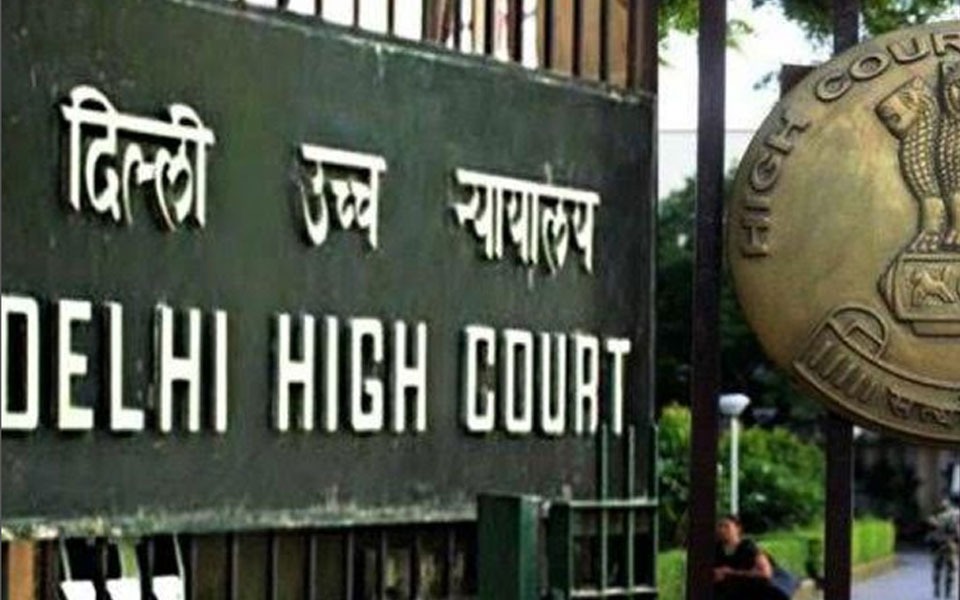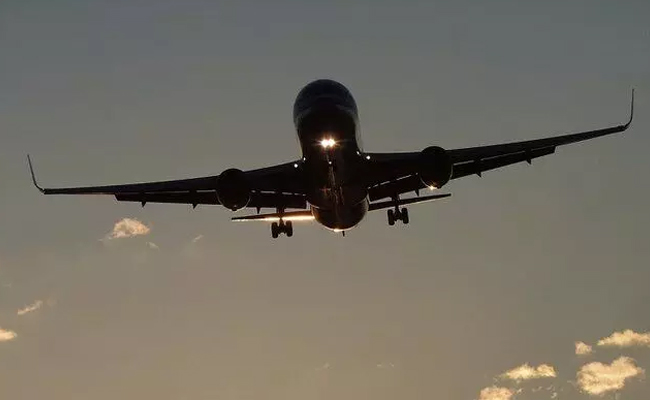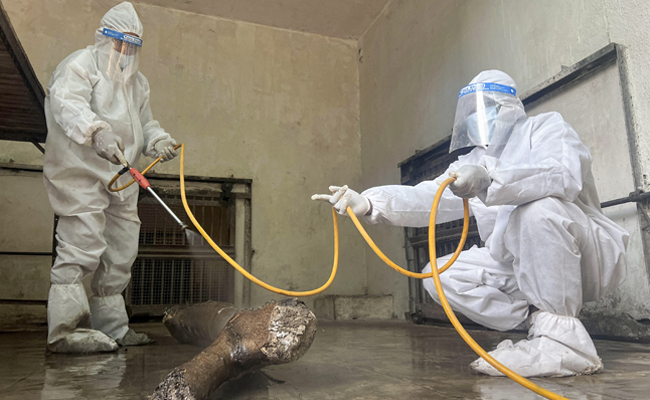Mumbai, Jan 8: The rupee extended its slide for the second straight session and declined 17 paise to hit a fresh record low of 85.91 against the US dollar on Wednesday amid higher crude oil prices and stronger American currency.
Lacklustre sentiment in domestic equity markets and sustained outflow of foreign funds also played spoilsport even as investors stayed cautious over lower economic growth projection by the government, forex analysts said.
At the interbank foreign exchange, the rupee opened at 85.82 and lost further ground to finally settle at 85.91 against the dollar, 17 paise lower than its previous close.
On Tuesday, the rupee settled with a loss of 6 paise at 85.74 against the dollar.
"This decline is attributed to the strengthening of the US dollar, bolstered by positive economic indicators from the United States, including robust labour market data and increased activity in the services sector. These factors have led to a rise in US Treasury yields, making the dollar more attractive to investors," Anil Kumar Bhansali,
Head of Treasury and Executive Director, Finrex Treasury Advisors LLP, said.
"In response, the Reserve Bank of India (RBI) has intervened through state-run banks to mitigate the rupee's losses. Despite these efforts, the rupee's depreciation reflects broader concerns about India's economic growth and capital flows," he said.
Meanwhile, the dollar index, which gauges the greenback's strength against a basket of six currencies, was trading 0.35 per cent higher at 108.76.
The 10-year US bond yields also remained elevated at 4.67 per cent amid expectations of delayed interest rate cuts by the Federal Reserve.
Brent crude, the global oil benchmark, climbed 0.90 per cent to USD 77.74 per barrel in futures trade.
In the domestic equity market, the 30-share BSE Sensex skid 50.62 points, or 0.06 per cent, to settle at 78,148.49 points, while the Nifty fell 18.95 points, or 0.08 per cent, to 23,688.95 points.
Foreign institutional investors (FIIs) offloaded Rs 3,362.18 crore in the capital markets on a net basis on Wednesday, according to exchange data.
The latest government data released on Tuesday showed India's economic growth rate is estimated to slip to a four-year low of 6.4 per cent in 2024-25 due to poor show by the manufacturing and services sectors.
The gross domestic product (GDP) growth at 6.4 per cent will be the lowest since the Covid year (2020-21) when the country witnessed a negative growth of 5.8 per cent. It was 8.2 per cent in the last fiscal year ended March 2024.
The first advance estimates of the national income for 2024-25 released by the National Statistics Office (NSO) is lower than the 6.6 per cent projected by the Reserve Bank in December 2024.
Let the Truth be known. If you read VB and like VB, please be a VB Supporter and Help us deliver the Truth to one and all.
New Delhi (PTI):
The Delhi High Court on Wednesday questioned the police if organising protests was enough to attract anti-terror law UAPA in a February 2020 riots' case, while asking it to specify the roles of activists Umar Khalid, Sharjeel Imam and others in instigating violence.
A bench comprising Justices Navin Chawla and Shalinder Kaur posed the query to the special public prosecutor Amit Prasad while dealing with their bail pleas in a case of alleged "larger conspiracy" behind the violence.
The bench remarked there could be no dispute as long as the the accused, who were stated to be protesting against a law, did not "exceed their rights".
The counsel was therefore asked to furnish the "specifics".
"In the WhatsApp groups, there is instigation that let's do this..a planning which is of chakka jam. There is also a hint of violence and violence actually happens. Till then, yes, if they are involved, you may say UAPA is attracted. But when you draw attention to something like a JACT (a WhatsApp group) and your argument is that they are organising protest sites, is that good enough?" asked the bench.
The court further asked the SPP if it was the prosecution's case that only a protest site was enough for UAPA or whether a protest site that paved way for violence was.
"Most importantly, for us, it is the intent under UAPA which has to be established," it added.
SPP Prasad said based on the material, including statements of witnesses, the role of each accused in the present case was identified and that's the reason not all members of the WhatsApp groups were named as accused.
"Come to the specifics then that for this man, this is what I have against him, this is why I am saying he was actually instigating violence rather than having a protest," the court told the SPP.
Prasad argued peaceful protests were merely a "facade" and the actual plan was "mass violence".
The conspiracy, he claimed, started in December 2019, with "first phase" of riots erupting on December 13, 2019.
He reiterated the police's stand that contrary to the narrative, the protest site at Shaheen Bagh -- whose "mastermind" was Sharjeel Imam -- was not a "nani-dadi protest" as there was evidence to show it was "not organic".
Women were "imported" there from other places in the capital, Prasad claimed.
The prosecutor said during the period of the conspiracy, several WhatsApp groups were formed with the accused persons; secret meetings were held among them and a plan was hatched to incite violence and hold chakka jam during the visit of former US President Donald Trump.
During the hearing, he also played videos of Chand Bagh area to demonstrate mobilisation of a mob which allegedly attacked police personnel.
The court will continue hearing the matter on December 9.
Khalid, Imam and others were booked under the Unlawful Activities (Prevention) Act (UAPA) and provisions of the IPC for allegedly being the "masterminds" of the February 2020 riots, which left 53 people dead and over 700 injured.
The violence erupted during the protests against the CAA and NRC.
While challenging the trial court orders refusing bail, Khalid and others cited their long incarceration and parity with other co-accused who were granted bail.
Most bail pleas, including the ones by Imam, Gulfisha Fatima and Khalid Saifi, were filed in 2022, and heard by different benches from time to time.
Khalid moved the high court in 2024 seeking bail for the second time, after his plea was dismissed by the high court in October, 2022.





